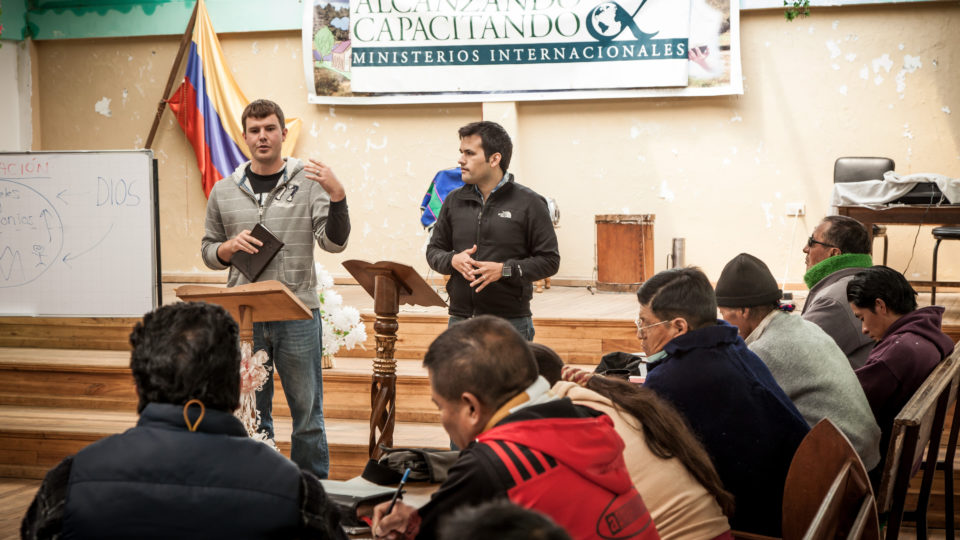Overcoming the Barriers to Healthy Missions: Language

In cross-cultural contexts, missionaries must overcome a variety of obstacles before developing healthy, fruitful ministry. We will spend several weeks sharing a series of articles about these barriers and how to overcome them.
LANGUAGE
日本語を理解しますか? ¿Hablas español?
Let’s face it… language is hard. The language barrier is what makes so many people scared to travel outside of their home countries. It makes global business difficult. It complicates family relationships. Language is a central part of who we are as human beings. In the garden, Adam had to name the animals (Genesis 2). When the Lord punished human arrogance in Babel, He did it by confusing the languages (Genesis 11). Much of culture is bound up and carried in language.
It should be no wonder, then, that the language barrier is one of the biggest hurdles to healthy missions. The solution is obvious: learn the language. Yet, too much missions work is done with almost no language proficiency. Vague hand signs and stilted dialogue is the norm.
Surprisingly, though, time and time again, when we talk to mission trip goers, the story is that there was an amazing connection between brothers and sisters in Christ—despite the language barrier. There is something special about worshipping in a language you do not understand, knowing the familiar tune is accompanied by faithful, God-glorifying lyrics. One of the big payoffs for going on missions trips is the feeling of connection with fellow believers from around the world—the sense that the faith you hold is global.
However, the language barrier is still there. The language barrier can be akin to a PA system with horrendous feedback issues. Maybe a word will occasionally get through all the noise, but the listener mostly must rely on body language and facial expressions.
Can you think of some ways that the language barrier gets in the way?
- You don’t have the ability to clearly communicate the Gospel
- You can’t know when there are underlying misunderstandings
- You don’t know if there are sinful things that need to be confronted
- You can’t ask for basic necessities or explain preferences
- You commit mistakes because you can’t follow simple instructions
The overall impact of the language barrier is that our time serving the Lord is hindered by having to redo the same thing over and over again. And did I mention, you can’t fully share the gospel if you can’t speak the language?
THE SOLUTION
You need to study the language! Maybe start by downloading a language-learning app. Find local people around you who speak the language of the people you are going to serve. Try watching Youtube videos of people having conversations in the language you need to learn. You could take a class. You could watch movies or shows in that language. But however you do it… start learning the language!
If you want to be a full-time missionary, you must learn the language. It is key to communicating with the people you are serving and integrating yourself into their local culture. The natural suspicion that exists when outsiders come into the community is mitigated by the ability to speak their language. You can start to make friends with the people in your new country. That is where the best impact for kingdom work will happen.
If you would say that going on a short-term missions trip doesn’t justify learning the language, I would agree with you. The monumental task of learning a language isn’t to be undertaken lightly. You can learn a phrase or two. Some greetings and “thank you” are good places to start. Translators will be a must for you.
However, connecting with the right translator, depending on what your work will entail, is essential. Different topics come with different challenges for translators. Teaching the Bible, for example, requires a certain level of technical language. Translators often have to simplify things so much that some of what you are trying to say can be lost.
You can help the translators out by getting to know them well and letting them know the kinds of things you are going to say. Give them space to prepare ahead of time as needed, and develop a rhythm with them.
If the translator you are using is going to be translating the gospel, you must make sure they understand the gospel before they try to retell it. Concepts like justification and repentance don’t translate word for word. The exclusivity of Jesus can also be misunderstood—especially if the translator doesn’t understand it. When possible, it is preferable for a local person who knows the gospel to be the one who preaches or shares the details of the gospel. Even a faithful translator could be tripped up by your turn of phrase and miscommunicate the most essential message of all time.
The language barrier is often the most difficult hurdle for us to overcome when we start doing missions. Your response to the challenge could be to shrink back from it—trusting that your good intentions will be communicated. Better still is using a good translator that understands what you are trying to say. The best option, though—especially for full-time workers—is committing yourself to a lifetime of language learning.
My prayer is that my missions experiences will be marked by the most faithful preaching of the gospel possible. May this be true of us all as we seek to overcome this challenge!
Want More Content Like This?
We will deliver Reaching & Teaching articles and podcast episodes automatically to your inbox. It's a great way to stay on top of the latest news and resources for international missions and pastoral training.
